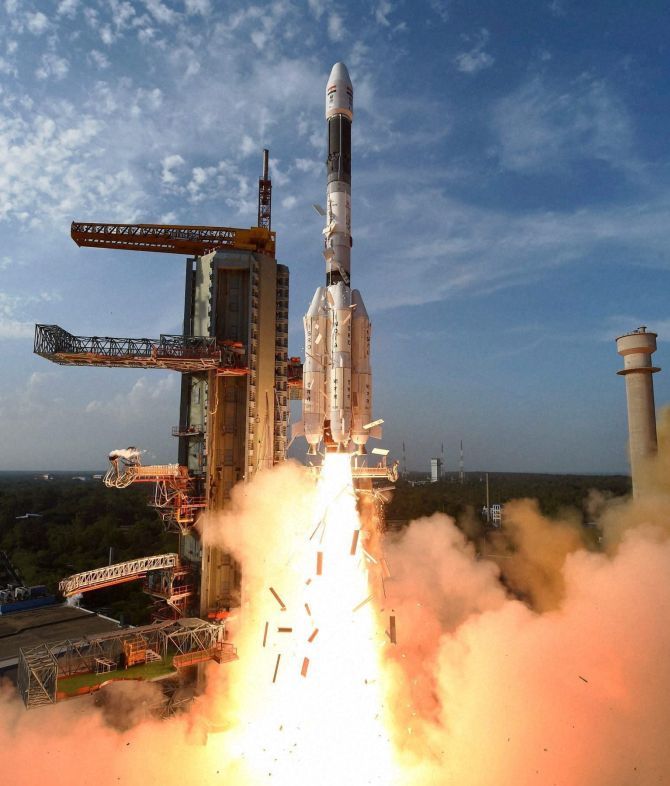Global analysts say a successful launch of operational GSLV MkII rocket will reduce dependency for ISRO on foreign launchers, reports Raghu Krishnan

India’s geosynchronous satellite launch vehicle, GSLV-MkII, completed its first operational flight on Thursday, hurling a two-tonne weather communication satellite into space.
The textbook launch will put Indian Space research Organisation among a small group of nations with proven capability to put communication satellites into orbit and also help the space agency to hurl heavier satellites for local needs and global customers.
So far, ISRO had only launched experimental GSLV launchers to prove the technology to carry two-tonne satellites into geostationary transit orbit, where communication satellites are parked.
ISRO’s success in operationalising the GSLV-Mk-II is being watched globally by communication satellite makers, as there is a shortage of reliable launchers globally. It would emerge a competitor to private launch companies such as SpaceX, founded by Elon Musk, and Blue Origin, a firm owned by Amazon founder Jeff Bezos, to hurl two-tonne communication satellites.
“We have limited capability for GSLV. But, we have begun exploring opportunities to launch communication satellites in the international market,” said Rakesh Sasibhushan, chairman and managing director of Antrix Corp, last month.
Global analysts have said earlier that a successful launch of the operational GSLV Mk-II rocket will first reduce dependency of ISRO on foreign launchers and could be a potential disruptor in pricing for launching foreign satellites on Indian soil. “Both (GSLV) Mk-II and III launches, if successful, could partially reduce ISRO’s dependency on foreign launchers,” recently said Maxime Puteaux, a space industry policy consultant at Euroconsult, the Paris-based space research agency.
“Although for commercial launches, GSLV Mark III is too small for most of the satellites, that are more than four tonnes. For satellites less than four tonnes, it could be competitive on price, provided it is available (i.e. not booked by the satellites of the Indian government).”
The first launch of GSLV-MkIII, ISRO’s heaviest rocket, will be in December.
Since its first launch in 2001 using a Russian cryogenic upper stage, ISRO has so far done nine launches, including two with a cryogenic stage that it built on its own. The space agency has also successfully launched a smaller version of GSLV-MkIII, a rocket with a newer design that can eventually carry four-tonne communication satellites or for India’s manned space mission in the lower orbit.
Currently, ISRO uses the Ariane space rocket of the European Space Agency to hurl its commercial communication satellites into space.
So far, ISRO has leveraged its workhorse, Polar Satellite Launch Vehicle, to serve global customers to hurl smaller satellites on the lower earth orbit. Since two decades of its first launch, it has done 35 flights, hurling 86 satellites, including 45 foreign small and medium satellites. Now, ISRO plans to outsource the entire rocket integration to an industry consortium, which includes Hindustan Aeronautics, Larsen and Toubro, Godrej Aerospace, Avasarala Technologies and Walchandnagar Industries. It is looking to triple launch capacity in a year to 18 with this approach.
“If you are able to build on top of what we’ve built PSLV commercialisation and make it more attractive, there is a possibility that the Indian industry can also gain in this global opportunity,” said Isro chairman A S Kiran Kumar, in a recent interview.
Image: The GSLV-MkII takes off from the launch pad in Sriharikota on Thursday. Photograph: PTI












 © 2025
© 2025